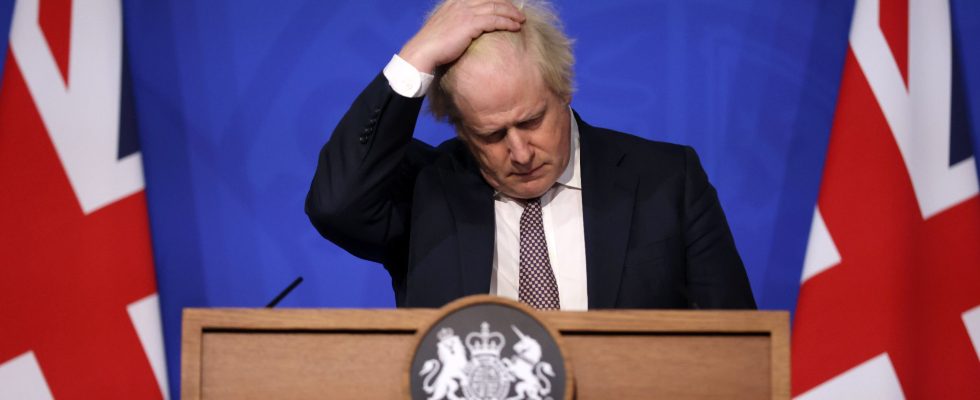Nine months after leaving Downing Street, Boris Johnson continues to haunt British political life. Three chaotic years in office, which the famous historian Anthony Seldon, a specialist in Prime Ministers, retraces in an uncompromising book (Johnson at 10 – The Inside Story, with Raymond Newell), which is an event across the Channel. The career of this enigmatic man, punctuated with hilarious projections, brilliant political intuitions and shameless lies, will it leave a taste of bitterness at first? Interview.
L’Express: For you, the major event in Boris Johnson’s career is Brexit. For what ?
Anthony Seldon: If he had not joined the Brexit camp, the United Kingdom would have remained in the European Union. Former mayor of London, Boris Johnson was considered a credible politician. Nothing suggests that he believed in Brexit. What he believed in was his career. Before opting to leave the EU, he refused to choose for a long time. Then, as Prime Minister, he also played a role in the war in Ukraine, establishing a strong personal relationship with Volodymyr Zelensky.
The pandemic was also a defining crisis of his time in Downing Street…
Boris Johnson is very liberal, opposed to the intrusion of the state in people’s lives, very permissive, and he does not like moral judgments. Instinctively, he is therefore against confinement. But the scientists told him it was essential. For him, it was torture. He didn’t understand the scientific data, couldn’t stick to a course of action. The tenure of every Prime Minister is defined by a major crisis. He was unlucky, unlike for example Gordon Brown [NDLR : Premier ministre de 2007 à 2010], who found himself facing a financial crisis while proficient in economics. Johnson knew neither epidemics nor science, although he favored vaccination.
Was he really a bad prime minister?
He was a very bad prime minister. Proponents of remaining in the EU accuse him of having chosen to leave; supporters of Brexit, for not having benefited from it. He should have done better. It hasn’t prepared the country for rising prices, growing NHS waiting lists [NDLR : le National Health Service, système de santé publique au Royaume-Uni]. He took everything lightly, lacked compassion for people, did not read his documents. And he had a dislike for Parliament, the civil service, the BBC, the universities, the French president…
According to you, Boris Johnson at least listened to the citizens who felt excluded by the elites of the metropolises…
He could have defended those who feel excluded by theestablishment well-to-do from the metropolises of south-east England. The problem is that he himself came from the metropolises of south-east England, a former mayor, white… He lacked authenticity.
Is a return to Downing Street possible?
No, Boris Johnson cannot return. His image was too damaged, because he never clearly defended any cause. He could say what he opposed, but not what he supported. People liked him because he was charismatic and funny. Look at the polls: of course he is no longer popular! He was abandoned by his own party. Johnson lacked credibility, and that’s a shame because he had some of the qualities required to be prime minister: charisma, charm, persuasion, humor, people enjoyed his company. Rishi Sunak, who lacks his charisma, inherits a degraded situation.
